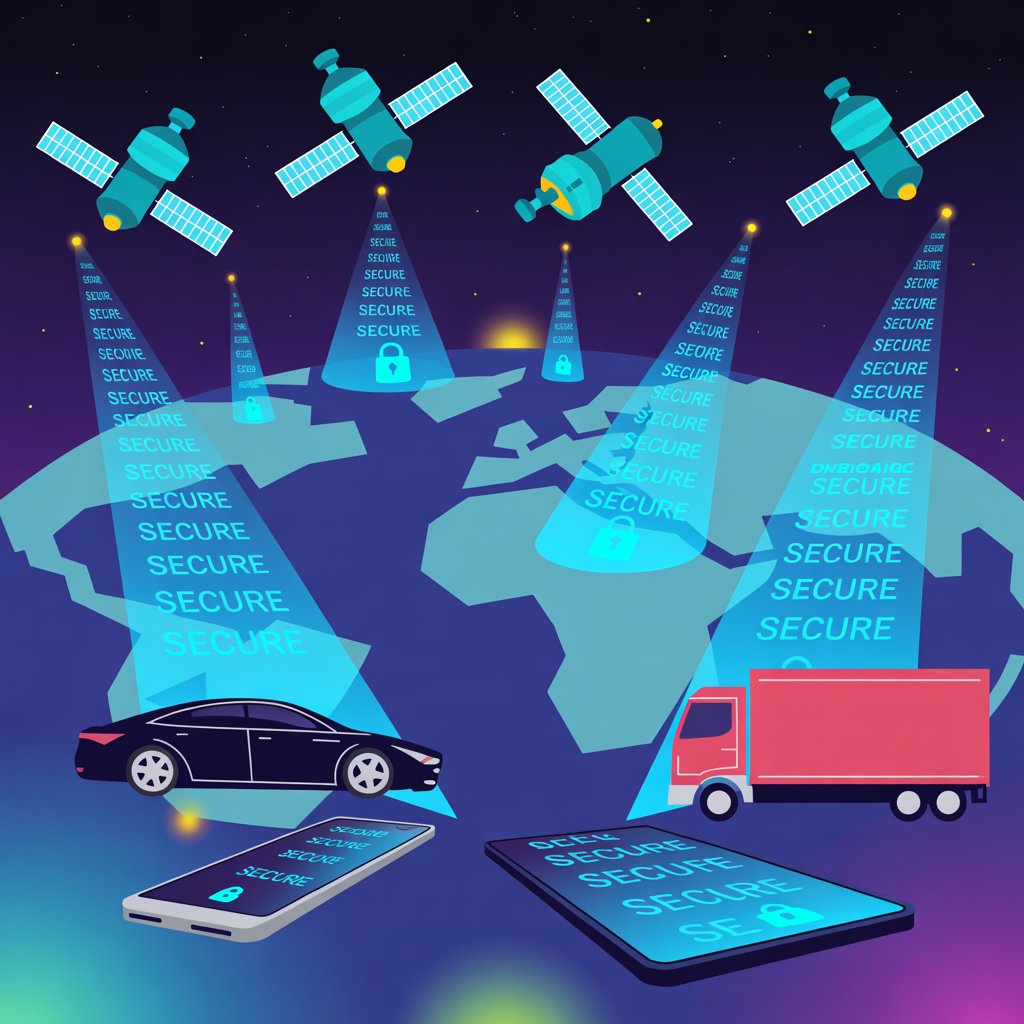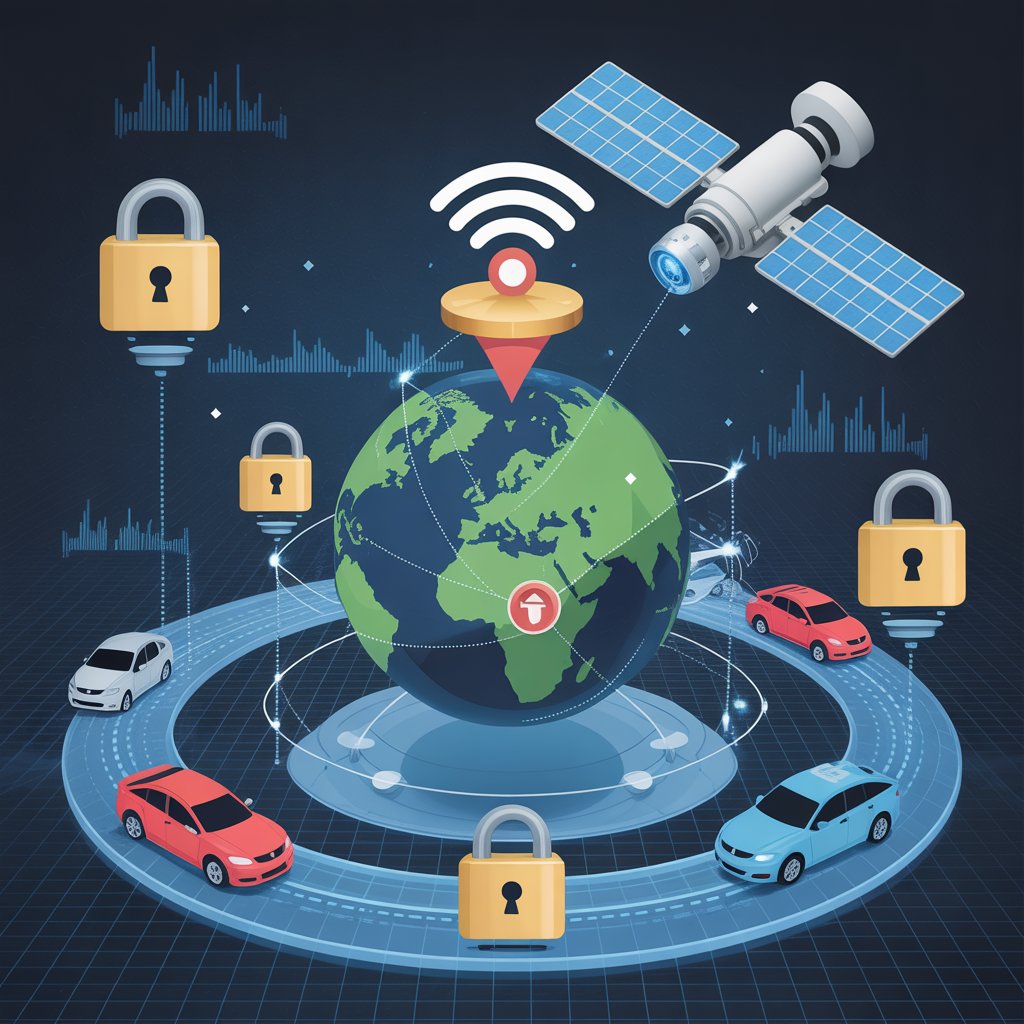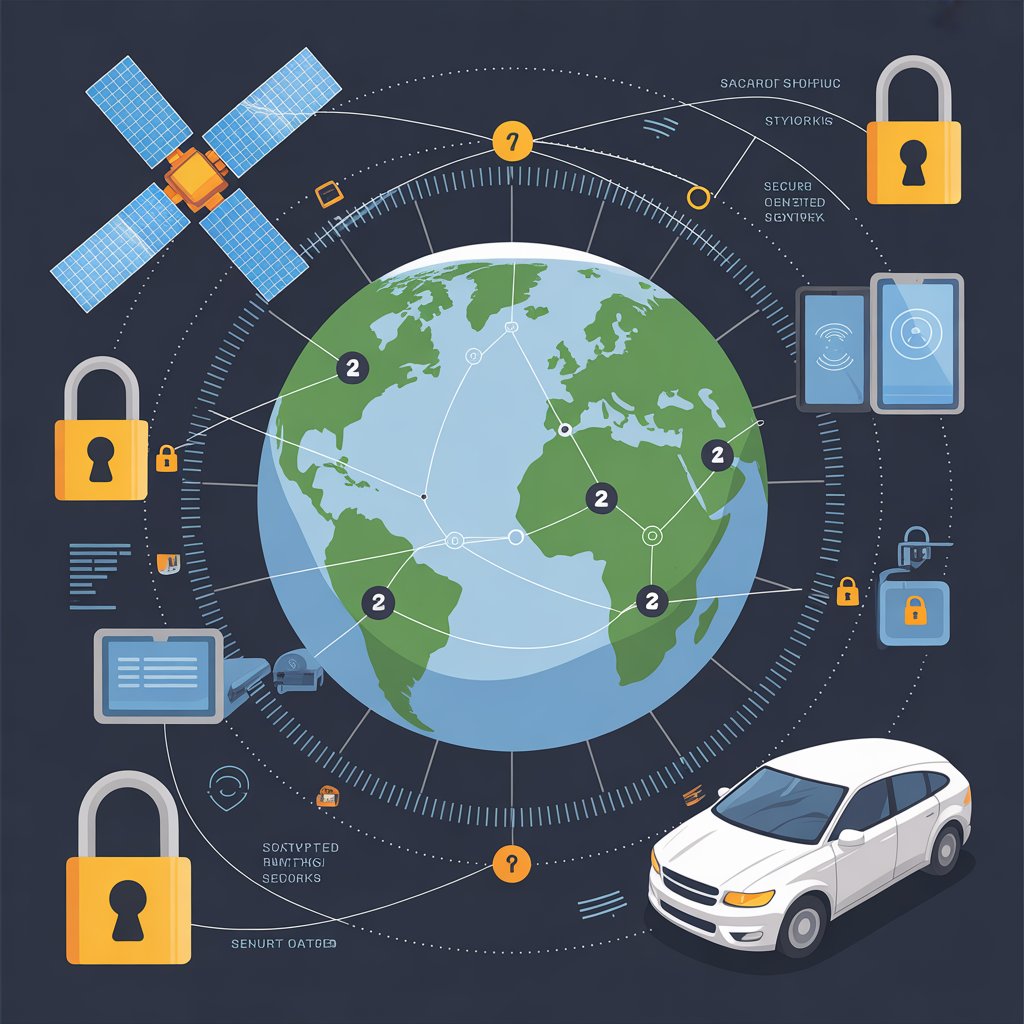GPS Data Encryption :Why It’s Critical in GPS-Based Systems (2025 Guide)
GPS Data Encryption:Why Data Encryption Is Critical in GPS-Based Systems | 2025 Guide

In today’s connected world, GPS-based systems have become an essential part of our daily lives. From navigation apps and ride-sharing platforms to fleet management and personal trackers, GPS technology powers almost every movement we make.
But with this convenience comes risk. Sensitive data such as location, travel history, and personal identifiers are constantly transmitted across networks. If left unprotected, this information could be exposed to hackers, identity thieves, or malicious actors. That’s where data encryption in GPS-based systems plays a critical role.
In this article, we’ll explore why GPS data encryption is so important, how it works, and what businesses, governments, and individuals must do to protect their information in 2025 and beyond.
The Growing Importance of GPS-Based Systems
GPS (Global Positioning System) technology has evolved far beyond basic navigation. Today, GPS is used in:

- Transportation & Logistics – Fleet tracking, delivery optimization, and traffic management.
- Consumer Apps – Navigation apps, food delivery, and ride-hailing services.
- Healthcare – Monitoring patient movements, elderly care, and medical emergency response.
- Military & Government – National security, intelligence gathering, and disaster management.
- Everyday Devices – Smartwatches, smartphones, and fitness trackers.
With so much personal and business-critical data being transmitted, securing GPS-based systems is no longer optional—it’s mandatory.
What Is GPS Data Encryption?
Data encryption is the process of converting readable information (plaintext) into an unreadable format (ciphertext) using cryptographic algorithms. Only authorized parties with the correct decryption key can access the original information.
In GPS systems, encryption ensures that location data, timestamps, and user information remain secure as they travel across networks. Without encryption, attackers could intercept this data and misuse it.
Why Encryption Is Critical in GPS-Based Systems

1. Protects User Privacy
GPS systems collect a large amount of sensitive data—such as real-time locations, travel history, and frequently visited places. Without encryption, this information could reveal personal details like home addresses, workplaces, and routines.
Encryption ensures that even if attackers intercept GPS signals, the data remains unreadable and useless without the decryption key.
2. Prevents Data Tampering and Spoofing
One major risk in GPS technology is GPS spoofing, where attackers send fake signals to mislead GPS receivers. This can cause vehicles, aircraft, or ships to navigate incorrectly.
Encrypted GPS tracking data adds a strong layer of protection against tampering. Encrypted signals are nearly impossible to alter without detection, reducing the risks of accidents, theft, or misinformation.
3. Enhances Business Security
For businesses that rely on GPS—such as logistics companies, ridesharing platforms, or delivery apps—data breaches can be devastating. Competitors or cybercriminals could steal route optimization data, fleet locations, or customer delivery details.
By using encrypted GPS tracking, businesses safeguard their operations, build customer trust, and comply with global data protection regulations.
4. Ensures National Security
Governments and military organizations use GPS for surveillance, navigation, and defense operations. Unauthorized access to this data could compromise national security.
Data encryption in GPS-based defense systems ensures that critical operations remain secure, even during cyberattacks or electronic warfare.
5. Compliance with Data Privacy Regulations
Laws like GDPR (Europe), CCPA (California), and other global data protection regulations require organizations to protect user data. Using encryption in GPS systems ensures compliance and avoids hefty fines.
Companies that prioritize data privacy in GPS-based systems not only stay legally compliant but also gain a competitive edge by showing customers that their privacy matters.
How GPS Data Encryption Works
GPS encryption relies on a mix of hardware security modules (HSMs), cryptographic algorithms, and secure key management.
- Encryption Algorithms: Advanced standards like AES-256 or RSA are used to encode location data.
- Key Management: Encryption keys are securely stored and managed to prevent leaks.
- End-to-End Security: Data remains encrypted from the GPS device to the central server, ensuring no leaks in transit.
For example, when a delivery company tracks its vehicles, the GPS device encrypts the data before sending it to the company’s servers. Only authorized software can decrypt and view the location.
Challenges in GPS Encryption
While encryption is powerful, it comes with challenges:
- Processing Power: Strong encryption requires more computing power, which can drain batteries in mobile devices.
- Latency: Encrypting and decrypting data can introduce small delays.
- Key Management Risks: If encryption keys are compromised, the entire system becomes vulnerable.
Despite these challenges, the benefits far outweigh the risks, making encryption an essential part of modern GPS security.
Future of GPS Data Encryption in 2025 and Beyond

As cyber threats evolve, so will encryption methods. Some upcoming trends include:
- Quantum-Resistant Encryption: Protecting against future quantum computing attacks.
- AI-Powered GPS Security: Machine learning to detect spoofing attempts in real time.
- Blockchain for GPS Data: Decentralized storage of encrypted GPS data for transparency and security.
- Stronger Compliance Rules: Governments will continue to enforce stricter encryption standards for GPS-based systems.
FAQs
Conclusion
Data encryption is no longer optional in GPS-based systems—it’s a necessity. From protecting individual privacy to safeguarding businesses and national security, GPS data encryption ensures that sensitive information remains safe in an increasingly connected world.
As we move into 2025 and beyond, encryption will continue to evolve, offering stronger protection against new and emerging cyber threats. Businesses and individuals that prioritize encryption in GPS technology will not only stay compliant but also build trust and reliability in their systems.
